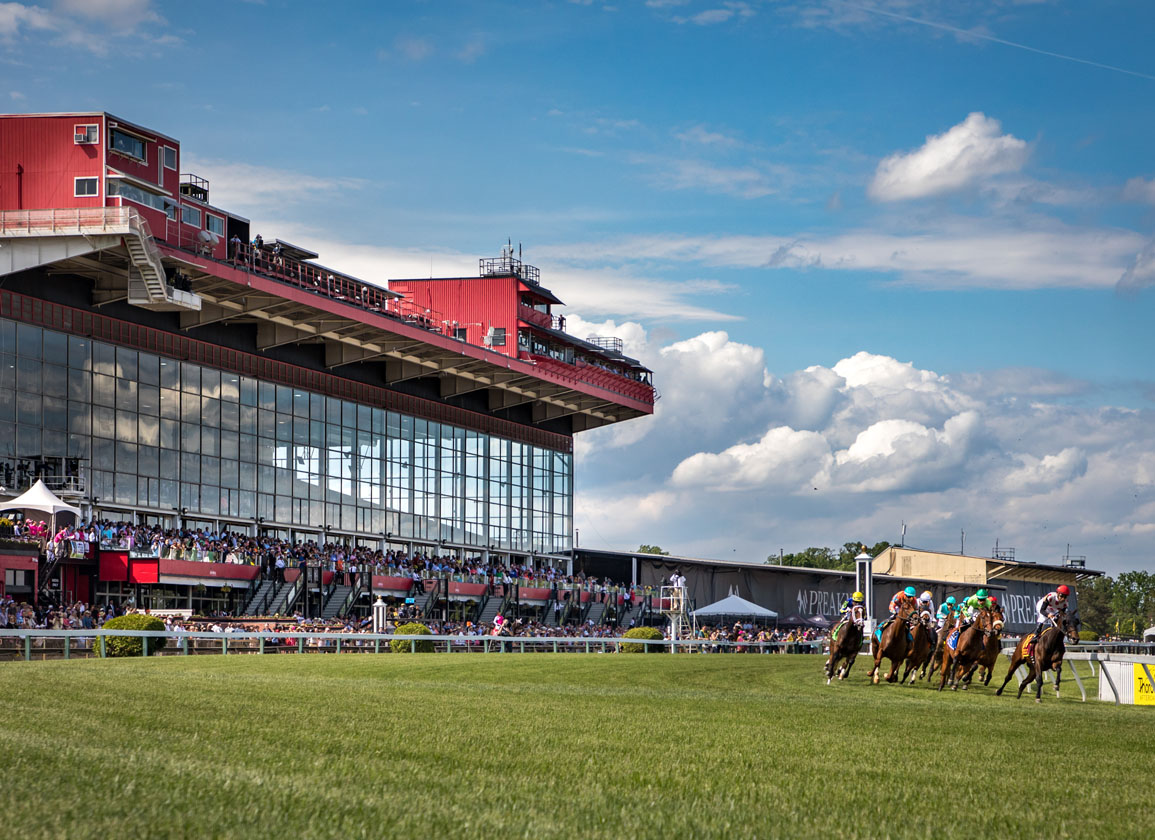There are a lot of opinions about the Triple Crown. Most of them center on the Preakness and the spacing of the three races. In my opinion, the Preakness is the victim of the Kentucky Derby's success, or as T.D. Thornton said so well in his article June 12:
“Underscoring how the Derby itself is devolving into a be-all/end-all, one-shot endeavor at the expense of the Triple Crown race that follows it, for the first time in 75 years, Mage was the only horse out of the Derby to enter the Preakness.”
The Preakness is a very popular event in Baltimore, it just isn't popular on national television because it hasn't been a good, competitive, highest-level race. Here's why that needs to change and how it can be improved for next year.
The 20-horse field for the Kentucky Derby offers bettors and fans Roman chariot race excitement. The horses get banged-up cut-up, and many put on the shelf for a while. Any extra betting handle coming from the cavalry charge of 20 horses to the first turn is not worth the risk to riders, horses and the sport, especially right now. Many in the industry hold their breath for two minutes.
For safety reasons, Churchill Downs (CD) needs to limit the Derby to a maximum 14 starters, like the Breeders' Cup. If they do that, good things will happen. The immediate result is CD is seen as making a positive safety move, but the magic for the Preakness, is that potentially six horses move to the second Classic with fresh horses and perhaps a full field for bettors and fans. NBC gets to promote a much better product and the Triple Crown improves.
CD may not like it, but the rest of the industry should. If CD does not make this change on its own, then there are two strategies to make it happen. First, the TOBA Graded Stakes Committee rules the maximum starters in a Grade 1 race is 14, same as the Breeders' Cup, which is a very common sense move. Second, HISA rules the same for safety reasons.
This idea is one way the industry can help the Preakness, the Triple Crown and the sport without controversy. But it's an incremental strategy that does not get to the core reason we have the Triple Crown.
Around the Thoroughbred world, breeders and owners each year seek to “prove the breed” through a series of 3-year-old Classic races for colts and fillies. All the other racing countries start in a common sense way with a shorter race first, usually at one mile, then move to 1 1/2 miles, then the final leg is somewhere longer. Not us. We start at 1 1/4 miles, then backslide to 1 3/16, then jump to 1 1/2 miles. It doesn't make sense, thus it doesn't work in an increasingly competitive sports world.
1/ST Racing, owners of the Preakness S., should do something in their own best interest to improve the Triple Crown. They should move the shorter distance Preakness to become the first Classic, perhaps two to three weeks prior to the Kentucky Derby, which is locked into the first Saturday in May. They do not need Churchill Downs permission.
1/ST Racing also owns two of the major Classic prep races, the Florida Derby and the Santa Anita Derby, both at 1 1/8 miles, which they can adjust dates and leverage toward the Preakness. What about all the other Classic prep races? They will need to adjust, which they have done from time to time. Remember, the objective is three Classic races to “prove the breed.”
With the shorter Preakness moved out of the way, the Derby horses would then have five weeks to rest up and prepare for the Belmont, which is what many trainers are doing now by skipping the Preakness. This extra time for all horses will make the Belmont a much better competition.
Moving the date of the Preakness would require the Maryland Racing Commission, City of Baltimore and 1/ST Racing to continue to collaborate on how to make Maryland racing a more successful venture with a future. To that end, the uncertainty of Pimlico and Laurel should lead to some bold thinking about how Baltimore can have a true racing success story. It's going to cost a lot of money to find any facility solution, even a bad one, why not go big on a proven racing model?
Baltimore Harbor has been the focus of major urban renewal to bring tourism downtown. It's been a struggle to find a dynamic focal point. There is great opportunity to bring Baltimore harbor a Hong Kong-style, urban race track. A sports and residential complex on the harbor, right downtown. It can be a multi-purpose facility without training stalls, where horses are shipped in on race days/nights from the training centers at Laurel and Fair Hill. Happy Valley is a multi-purpose sports complex on less than 100 acres in Hong Kong. This could be the most stunning racing facility in America, a true tourism draw for Baltimore.
It's a lot easier to address the minor problems of three races in the Triple Crown than it is to tackle the structural problems of the sport in America. TDN does a good job of allowing readers to offer ideas, maybe some of them will click.
Not a subscriber? Click here to sign up for the daily PDF or alerts.






